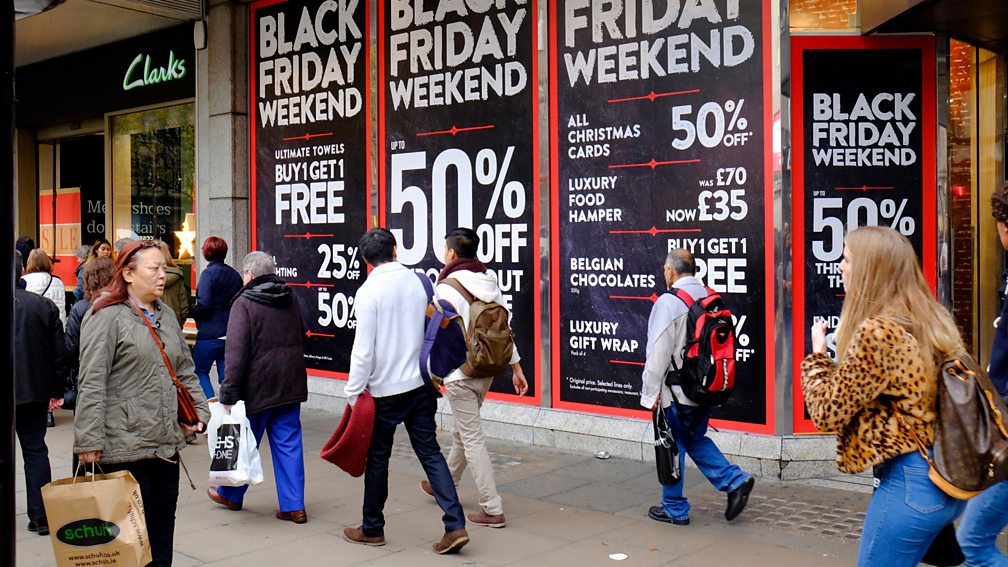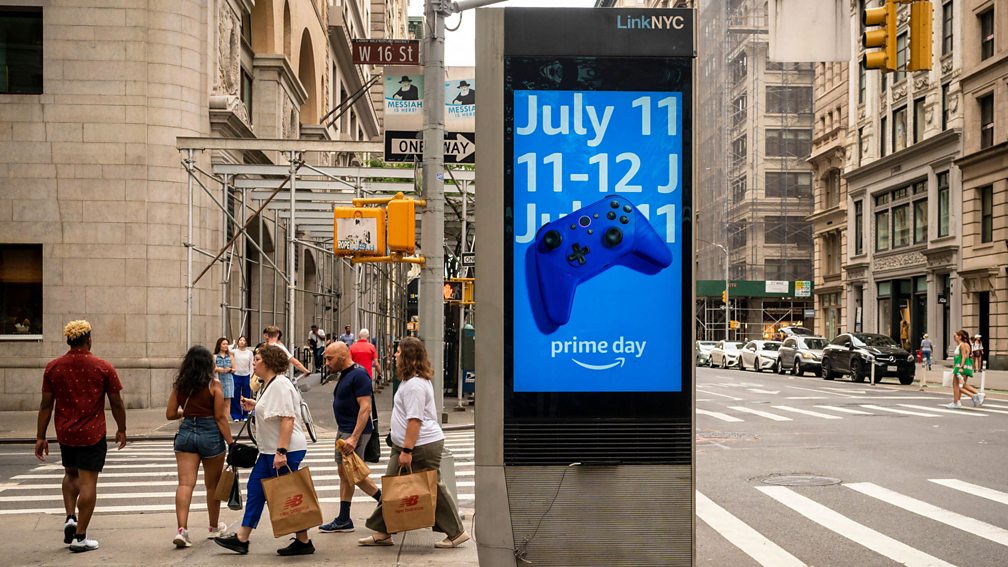
This article is more than
2 year old
Black Friday once had a simple definition: a one-day shopping blowout, when major retailers such as Macy's and Target promised rock-bottom deals the day after US Thanksgiving.
Today, however, it isn't unusual to find stores advertising Black Friday sales well before the holiday shopping season unofficially kicks off; Walmart is already running its Black Friday adverts in the US, for instance. Some businesses kick off their deals months earlier, or stretch them after Black Friday itself, like Cyber Monday, a digital afterparty focused on ecommerce discounts.
What started as the highest-profile single shopping day of the year has turned into a synonym for "deep-discount shopping event" – even if it happens to be in July. "Black Friday really is a huge deal," explains David Bassuk, New York-based partner and managing director at AlixPartners, a global business-advisory firm. "But Black Friday is no longer a single-day event."
How did Black Friday bloat from a day to an entire season – and beyond? Experts say it's the result of retailers trying to outdo one another to capture shopper dollars, especially amid the rise of ecommerce platforms, such as Amazon. But the success of the Black Friday model is also thanks to the way a simple turn of phrase – "the lowest prices ever" – can capture even the savviest shopper's attention.
The cascade
The Friday after Thanksgiving in the US still represents one of the largest days of shopping in the retail year. The National Retail Federation (NRF) found that approximately 73 million US shoppers bought something at a brick-and-mortar store on Black Friday in 2022. Retailers around the world have gotten in on the
US-centric phenomenon: countries including France, South Africa and Russia now mark the third Friday of November with doorbuster deals.

The extension of Black Friday sales into the online space has worked for retailers. In 2022, the NRF found 77 million Americans bought something online on Cyber Monday. This year, an annual report by Adobe Analytics showed shoppers are expected to spend around $12bn (£9.6bn) in online purchases on Cyber Monday.
Brad Davis, an associate professor of marketing at Wilfrid Laurier University, Canada, says consumers like Cyber Monday, too: the online extension of Black Friday has helped take the pressure off shoppers who want to grab good deals, but aren't willing or able to fight the crowds. Large retailers have also embraced it: as an ecommerce-driven version of Black Friday, it doesn't require stores to sit on a massive supply of merchandise, across many doors, to satisfy the demand of discount-seeking shoppers.
It's little surprise, then, that Cyber Monday has stretched into Cyber Week and beyond. Martin Qiu, an associate professor of marketing also at Wilfrid Laurier University, says e-commerce events are simply easier to hold for longer periods of time. And consumers are interested in them.
Plus, as retailers try to get shoppers to spend more and more each year, these timelines for hot deals are stretching longer and longer. "The reality is, the whole thing is completely blurred," says Neil Saunders, retail analyst and managing director of GlobalData Retail, of the difference between Black Friday and Cyber Monday. "It's just one big discounting weekend."

Black Friday… in July?
Now, retailers have started using the "Black Friday" concept far beyond the winter holidays.
Amazon's mega-discount-driven Prime Day, which runs on 12 and 13 July, with an encore in October dubbed 'Prime Big Deal Days', features the same types of hype, blowout sales and wild shopping activity as Black Friday. In 2023, Adobe Analytics found shoppers spent $12.7bn (£10.2bn) on Prime Day – more than Cyber Monday spending the previous year. Meanwhile, some retailers, like electronics brand Best Buy, promote summer sales events like 'Black Friday in July' as a way to maintain their own edge while shoppers are pursuing Amazon's deals.
Do shoppers get tired of the fire-sale rhetoric? Davis concedes some people may find the steady creep of promotions, offers and deals overkill, but for most shoppers, it remains an effective retail strategy to part consumers with their dollars.
"Promotion," says Qiu, "is as effective as drugs."